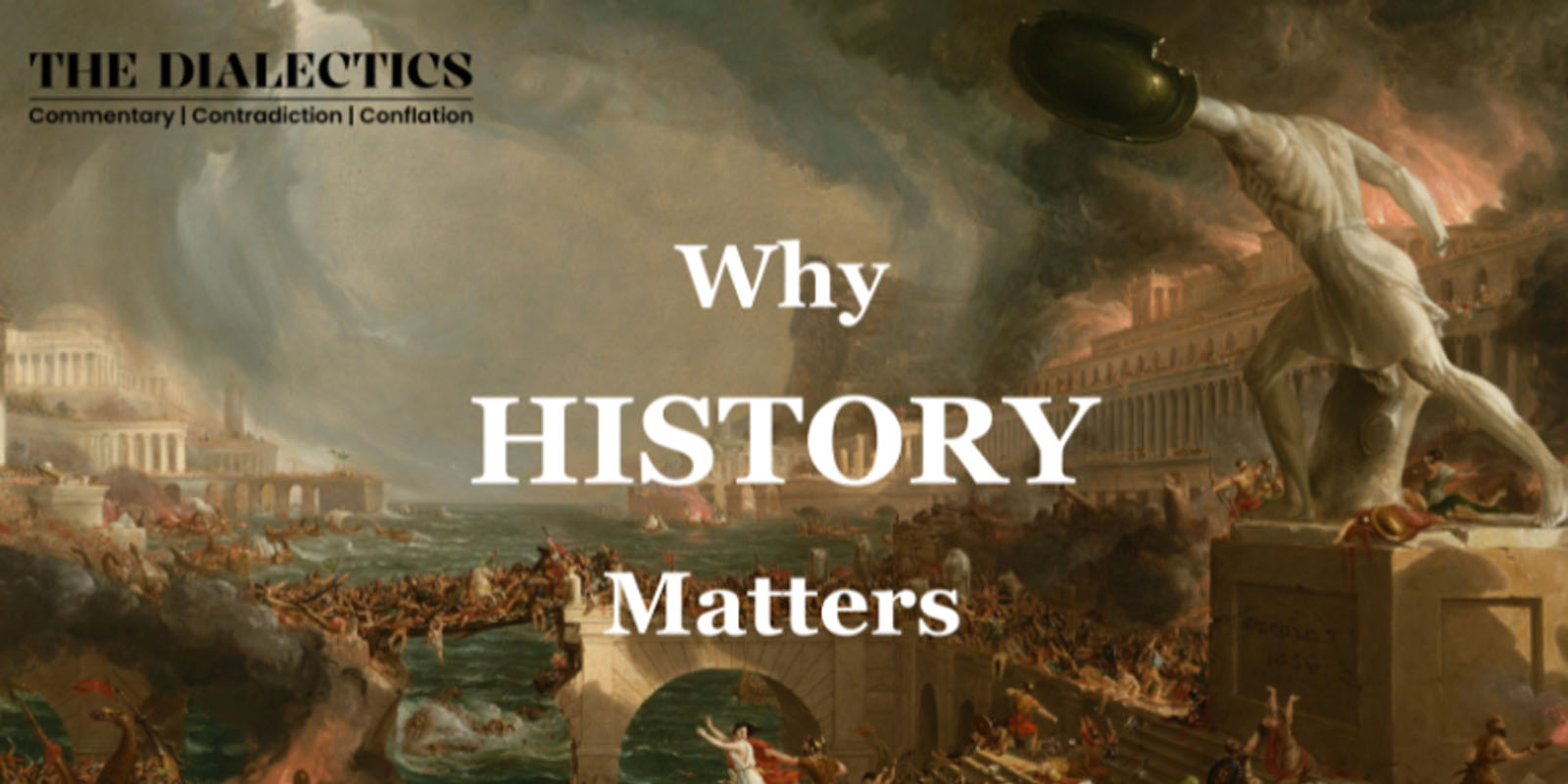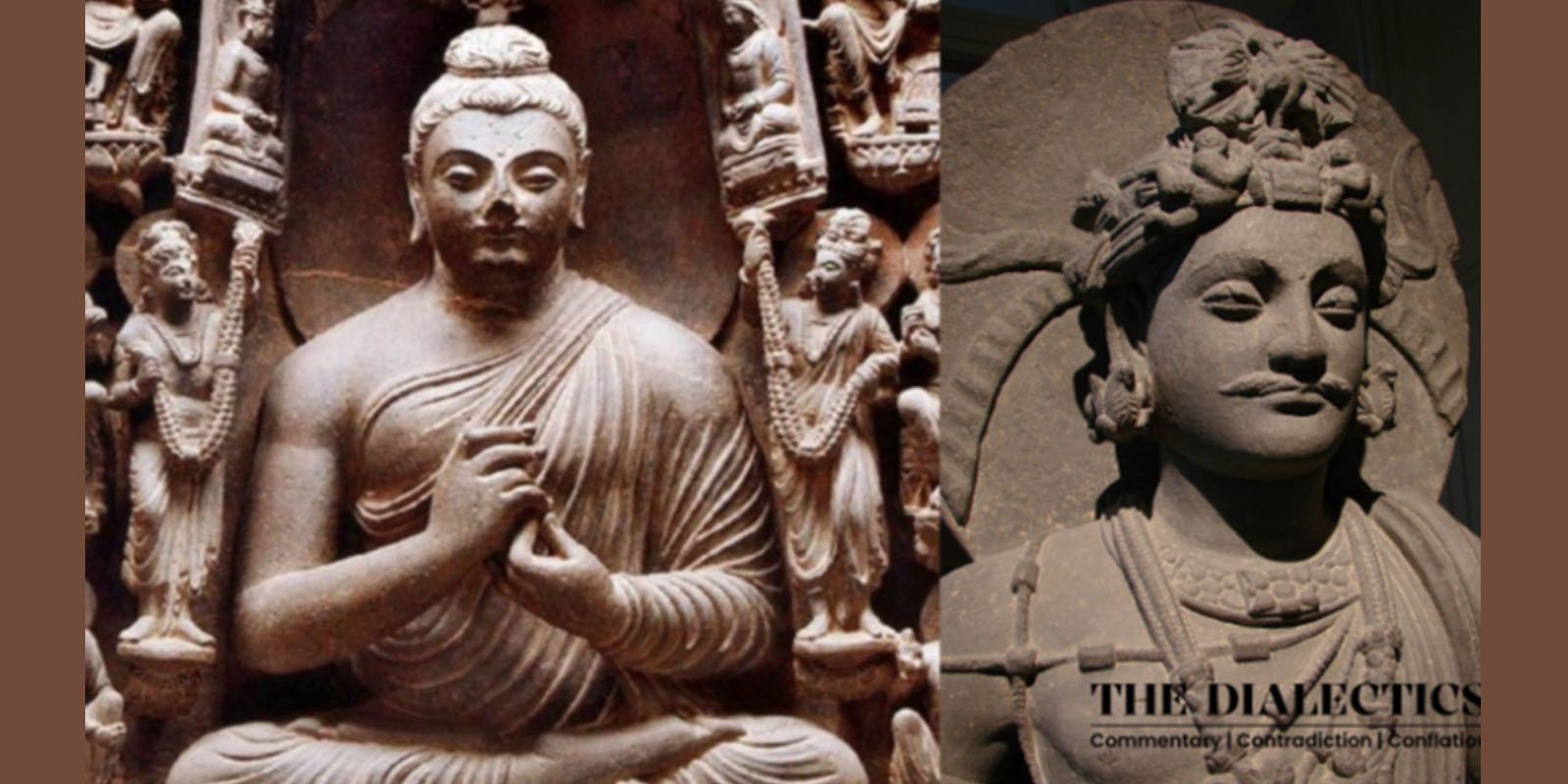In the rush of today’s fast-paced world of rapid technological advancements and fleeting trends, one night questions the relevance of knowing the past. Understanding history is not just about dusty old textbooks or ancient civilizations. It’s rather a lens through which we can make sense of our world today. I believe that history is more than a collection of facts. History is not just a chronicle of past events. It’s a repository of information of past culture, art, architecture, literature, individuals and their lives. Imagine writing an article on technology without knowing its background, its journey from past to the present, how things have changed, how things have developed over years. There’s nothing in this world that doesn’t have a history.
How does one know history without reading it?
History is conveyed in mysterious ways. India holds a vast and diverse history in every corner. How do we know history? History has journeyed from the Indus Valley civilization to the present day. However, it hasn’t traveled solely through books but has been preserved and transmitted through countless avenues. People often possess historical knowledge without even realizing it. History is gained through several means beyond formal education. From oral traditions and family stories to cultural practices, monuments, arts, festivals and even cuisine, history is embedded in the very picture of daily life.
Imagine reading a diary entry from your grandparent. Through their words, you might uncover their experiences during events such as the post-independence era, detailing how these events affected their lives, communities, and the nation.
Imagine finding an old 500-rupee note. It can evoke a strong sense of nostalgia and serve as a link to a historical event. It symbolizes an important moment in recent history: the demonetization. Objects serve as a reminder, no matter how small a thing is, it carries a history or a past. Even a coin, diary, photograph carries stories, and struggles of those who came before us.
Why do we Need to Understand the Past?
Does history have relevance in today’s world? Why do we study history? We regularly encounter people who ask why they are required to take a history class. It’s common for people to question this especially when they may not see the relevance to their daily lives or career paths. Like every other story, history has a beginning, a middle, and an end. Each phase offers knowledge, and often the conclusion imparts a lesson or moral. Lessons that offer guidance and understanding for the present and the future. It is important to understand and learn the lessons history has to offer us. Without learning history, one ends up repeating it.
Napoleon’s Russia Campaign
In the words of Karl Marx “history repeats itself, first as tragedy, then as farce.” Let’s take up the example of Nazi Germany. Implementing strict censorship on prominent scholars like Albert Einstein, Sigmund Freud, Karl Marx, Max Scheler etc. limited and suppressed opposition to the Nazi. But what they didn’t realise was that despite their efforts to stifle the disagreement, the very act of suppressing knowledge often highlights the importance of those ideas. When Napoleon Bonaparte attempted to invade Russia, he failed disastrously. “General Winter” was the key factor in the disintegration of a large army during his campaign in Moscow. Similarly, Germany’s failure to seize Moscow during World War II also significantly impacted by the harsh winter condition. Adolf Hitler mirrored the past failure of Napoleon Bonaparte. It is important to examine historical mistakes, so we can steer society away from similar pitfalls.
History and the Cultural Awareness
Today’s culture is a product of the past, preserved and transmitted through generations. Cultural practices have played an important role in shaping today’s society. Our current culture is a developed reflection of its historical journey, having been molded and transformed through many changes over the ages. This cultural evolution has resulted in a unique identity defining communities and individuals. Understanding this identity involves knowing its origins and the experiences it has undergone. Without which there is a significant loss.
Let’s consider the example of Indian classical dance. Dancers in the pre-colonial times were seen as ‘artistic’ since they participated in courtly and ritualistic activities as dancers. Some of these women had largest individual incomes, owned property, were active taxpayers and privileged enough to be respected. However with colonialism there was a loss of prestige for those women. However, the early twentieth century saw a revival and reformation. Today Indian classical dance has evolved to incorporate modern themes. A folk Indian dance is an oral tradition, which has been historically learnt and passed down from one generation to the other through word of mouth. Today’s culture is the product of this evolution. Knowing where we come from, our roots, traditions and cultural background provides a sense of belonging.
Reading History can shape responsible Individuals
Studying history holds a significant importance for individuals beyond academic purposes. Understanding history enables individuals to participate more effectively in civil life and make informed choices in public discourse. Historical awareness is important for making decisions as a citizen of a country.
Take for example the Indian independence. Understanding the movement gives Indian citizens the knowledge of the foundation of their democracy, the awareness of their rights in this country. The communal riots of Jabalpur 1961, Gujarat riots 1969, Sikh massacre 1984, Kashmir violence 1989 had a profound impact on the society, raising critical questions about secularism and communal harmony. Knowledge of these events enables citizens to critically assess current issues related to communal tensions. Understanding the consequences of past riots can inform efforts to promote peace and unity.
History is a treasure trove of inspiration. It is filled with stories of individuals who have overcome tremendous challenges and made significant contributions to the society. Maharana Pratap, and Chatrapati Shivaji are known for their bravery and patriotism, inspires many individuals today. Many political leaders like Vallabhbhai Patel, Jayaprakash Narayan, A.P. J. Abdul Kalam, Subhash Chandra Bose etc. continue to inspire the citizens of India.
Engaging in history is far from an academic exercise. It is an important practice that enriches our personal lives, informs our civic duties and fosters a deeper understanding of humanity. Learning history offers a narrative, connecting the past with the present highlighting the nature of culture and its role in defining who we are. History offers insights into human behavior, societal evolution, and cultural identity. Through the study of the past, one gains a deeper understanding of the interconnection of our world. Ultimately history is an important tool for personal and social growth, helping us to navigate the present, build a future informed by our rich collective past.
Author
-

Yashasvi holds her Master’s degree in History from Goa University. She is recognised for her insightful analysis and unique writing on History, culture and society.
View all posts




